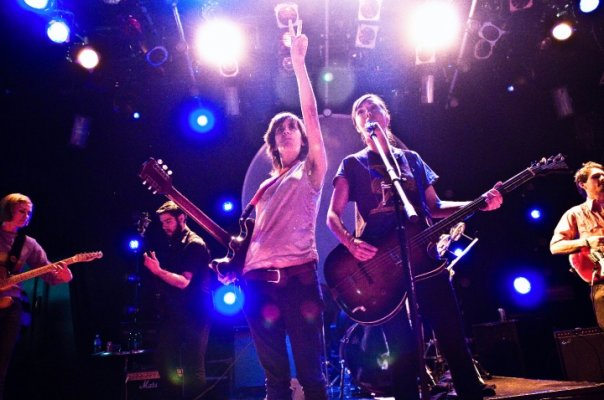 Bruce McDonald is as renegade a filmmaker you’ll find these days, with an ever-shifting style. The common link between his works is an impulse to tell narratives through experimental techniques. However, as “experiments” they are tightly controlled and never appear to be style over substance. The brilliance of his films, as opposed to someone like Tim Burton, are that the visuals (including photography, film stock, format) serve the story, even when he fails you see where he’s going.
Bruce McDonald is as renegade a filmmaker you’ll find these days, with an ever-shifting style. The common link between his works is an impulse to tell narratives through experimental techniques. However, as “experiments” they are tightly controlled and never appear to be style over substance. The brilliance of his films, as opposed to someone like Tim Burton, are that the visuals (including photography, film stock, format) serve the story, even when he fails you see where he’s going.
In this respect, Trigger is a traditional character driven comedy/drama that evolves slowly into a touching tribute to actress Tracey Wright, who was dying slowly during filming. Telling the story of two women: a Toronto based musician (Wright) and a Los Angeles-based television executive (Molly Parker) that were once a popular grunge duo known as Trigger, imaginary Canadian contemporaries of girl grunge rockers Hole and The Breeders.
They meet again, after many years in a swanky restaurant atop the Toronto skyline and spend an evening exploring the city including the indie rock scene where they are greeted as stars to adoring fans falling outside of the mainstream.
McDonald flawlessly blends narratives with soul searching. Much of the film is carried by Wright and Parker and their impeccable sense of timing, the type of timing that just snaps into place after two old friends become comfortable with each other once again. It’s a fascinating process to watch this film unfold: two people who resent each other in the first act rekindle a touch relationship over the evening. The reverse of what occurs in Kelly Reichardt‘s Old Joy, which pin points the moment a friendship dies. Here the acting, directing and writing are so spot on and simple they are transparent.
Reminiscent of McDonald’s previous film (This Movie is Broken), which essentially told a story within a Broken Social Scene song within a film framed by contemporary history taking place around a Broken Social Scene Concert, Trigger is about time and place as much as is about narrators, seen and unseen. Here there is no narration the way narration existed in his Pontypool (a fascinating and effective zombie film about language) and The Tracey Fragments (which presents us with an both a visual and auditory unreliable narrator, it’s protagonist and the filmmaker conspire to present a fragmented narrative). Trigger takes a simple approach creating a wonderful and warm portrait of a friendship that recalls why two people bond together in the first place: the music is greater than themselves.
9.5 out of 10

